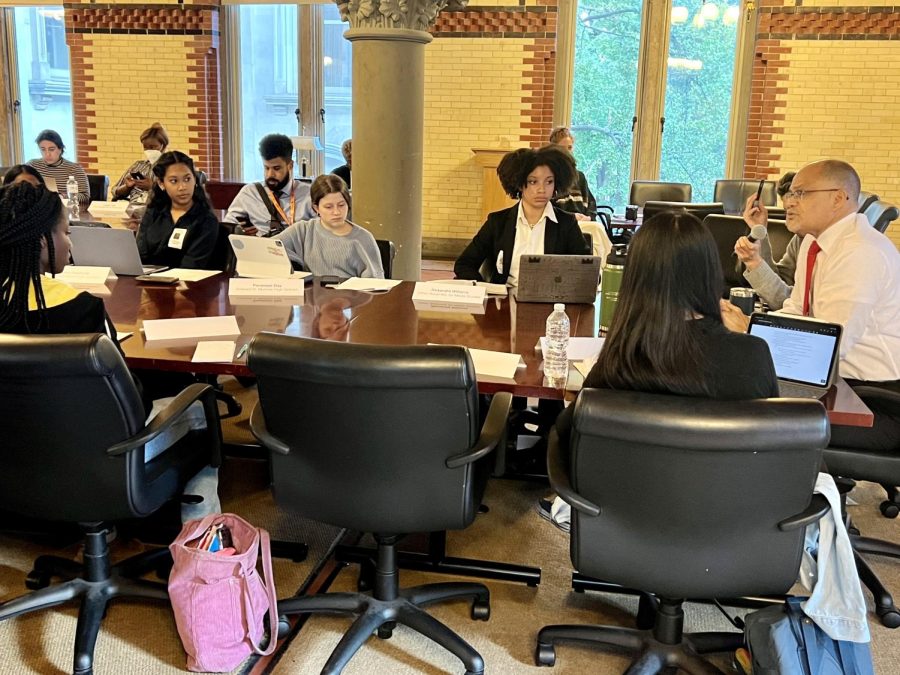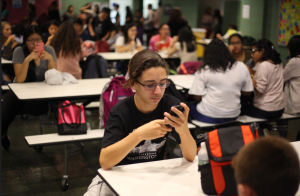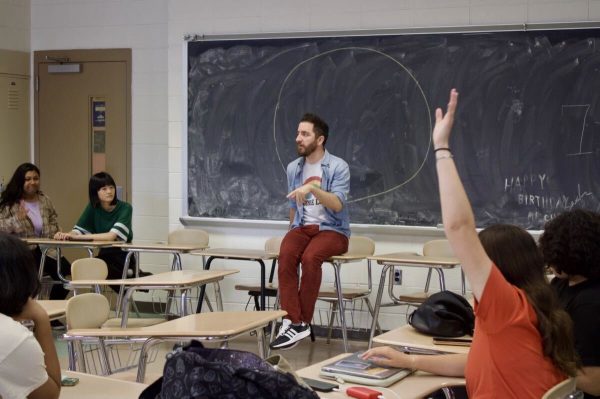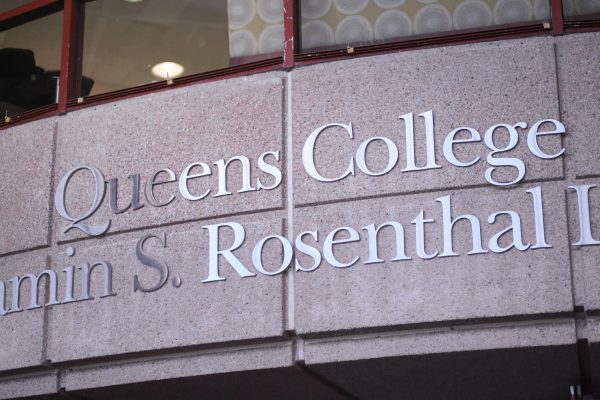At student press event, NYC Schools Chancellor voices support for student journalists amidst nationwide clashes over book banning, censorship, and curricula

During a roundtable event held last week at Tweed Courthouse, New York City Schools Chancellor David Banks took questions from student journalists across the city. In response to questions from The Classic about the elimination of a Nebraska high school journalism program and a wave of restrictions being imposed on subject matter in classrooms across the country, the chancellor expressed support for the rights of student journalists.
Last spring, a high school newspaper located in Grand Island, Nebraska was shut down after students published an issue featuring three pieces on LGBTQ+ topics. The closing of the paper at Northwest High School, after 54 years of publication, made headlines across the country at a time when numerous states are proposing and passing legislation largely on how LGBTQ+ and race-related topics can be taught in schools.
“I stand for freedom of expression for student journalists here and all across the country,” Chancellor Banks said when asked by The Classic about the Nebraska High School paper. “Education should always be about hearing varying points of views whether you agree with [them] or disagree with [them]. You may not be supportive of the LGBTQ community in your own personal space…but to say we can’t even have a series where we’re talking about those issues is completely wrong.”
In an hour-long discussion with student journalists from schools across the city such as Midwood High School, The Clinton School and The Urban Assembly for Media Studies, the chancellor repeatedly voiced support for the rights of student journalists and denounced the censorship of student newspapers. Seated alongside multiple students in a Tweed conference room, he spoke fondly of his own experiences feeling valued for his voice as a student government leader at Hillcrest High School. He also emphasized the importance of student voice from a principal’s perspective, reminiscing about changes he made based on student suggestions during his time as principal of the Eagle Academy for Young Men in the Bronx.
Regarding student journalism, Chancellor Banks said that administrators should not intervene in student reporting unless that reporting were to shut down a class or impede another student’s ability to get an education.
“There should not be decisions that are made that violate your constitutional rights,” he said, noting that student newspapers often play an important role by finding stories that raise awareness about problematic issues within a school. Articles that are “very critical of the school administration” do not provide administrators with a legitimate reason to stop students from expressing their voices, he said.
Student journalists at the Northwest High School Viking Saga newspaper were told in April 2022 that they were required to use student names given at birth in articles. In June, the journalists of the Viking Saga published three articles related to LGBTQ+ topics: an opinion piece on Florida’s so-called “Don’t Say Gay” bill, an opinion piece called “Science of Gender,” and an article on the history of Pride month. The front page also featured two rainbows. The district shut down the school newspaper after the publication of this issue.
Zach Mader, vice president of the Northwest Public Schools board in Nebraska, told The Grand Island Independent, that “there have been talks of doing away with our news if we were not going to be able to control content that we saw (as) inappropriate.” Mr. Madar also explained the apparent reason for the Saga’s demise: “The very last issue that came out this year, there was… a little bit of hostility amongst some. There were editorials that were essentially, I guess what I would say, LGBTQ,” he said.
Superintendent of Northwest Public Schools Jeffrey Edwards did not return a request for comment from The Classic.
“Unfortunately you’re seeing a lot of that across America,” Chancellor Banks said at the student roundtable, referring to school districts deciding that certain topics should be kept out of schools. “And so I feel challenged in this time and space. I feel like in many ways we’re kind of going backwards as a nation on issues. But the only way forward is for young people to continue to push.”
The chancellor referred to widespread news of recent bans on books and curriculum in numerous states as “deeply problematic.”
In an interview with The Classic, Hillary Davis, Advocacy and Organizing Director of the Student Press Law Center, said, “Nebraska is not an isolated case, not by any means. Censorship has been a problem in schools across the country for now almost 35 years, ever since the Hazelwood decision of 1988. We have always seen this subjective censorship that is based entirely on the concerns and whims of an administrator.”
The 1988 Hazelwood Supreme Court case upheld a decision by administrators at a Missouri high school to censor two stories from a student newspaper and has set the standard for administrative oversight of school publications ever since. According to the decision, administrators can exercise “editorial control over the style and content of student speech in school-sponsored [publications] so long as their actions are reasonably related to legitimate pedagogical concerns.” What counts as a “legitimate pedagogical concern” has been interpreted in numerous ways, and as result, 16 states have since passed legislation to clarify the 1988 standard and explicitly protect students’ First Amendment rights.
Though the chancellor voiced support for New York City journalists, New York is not one of these 16 states and remains a place where school administrations have leeway should they seek to control content at student publications.
“It is important to note that there is nothing in New York City or in New York State that prevents an issue like what happened with the Viking Saga from happening at any school in New York. And so while the chancellor is giving a full throated support and that’s amazing, there is currently no law, there is no policy,” said Ms. Davis.
During the roundtable interview, students from other New York City high school newspapers asked Chancellor Banks about legislative efforts in New York to protect student press freedoms, such as a bill now in Albany proposed by the organization New Voices New York.
Chancellor Banks expressed interest in the bill but wanted to review the details of it before committing to support it. “I would like to follow up on that,” he said.
For now, should New York City student journalists face censorship from school administrators without legitimate reasons, Chancellor Banks said to bring the issue to his attention.
“You can come to the chancellor,” he said.
Your donation will support the student journalists of The Classic. Your contribution will allow us to purchase equipment, support our extracurricular events, celebrate our staff, print the paper periodically, and cover our annual website hosting costs.
































